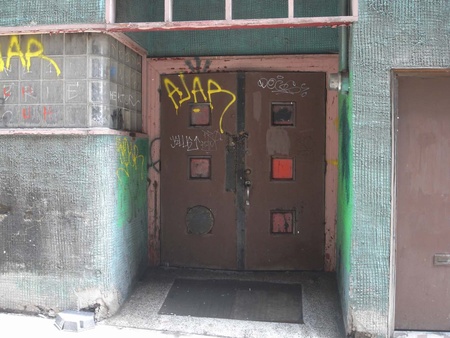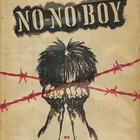"No-No Boy" depicts Ichiro's life after the war ends and he returns to his hometown of Seattle, and his interactions with the people around him. The story revolves around Ichiro's inner monologue, and does not have a strong narrative quality. Nevertheless, the reader wonders what kind of way Ichiro will find to live in the midst of his suffering, and whether there is a way out of his suffering.
In the final chapter, an incident occurs, but there is no emotional cleansing event, such as the resolution of something or the elimination of suffering. However, as Okada says at the end, a faint light shines on the protagonist's inner self, suggesting a sign of hope. The story does not end easily, and the ball that the author has thrown remains firmly in the reader's hands.
Club Oriental
The final chapter returns to the beginning of the story, to the Jackson Street neighborhood where Seattle's Japantown once stood. A seedy area completely transformed by the war, the author takes the reader to another iconic location: the Club Oriental.
It was at Club Oriental that Ichiro went out drinking with his friend Kenji and was teased by Bull, a veteran who was also of Japanese descent. After getting drunk and angry, he was called out by his younger brother Taro and his friends and attacked because he was a No-No Boy.
Next, it was here that Kenji said goodbye to his family, and just before he left for Portland with Ichiro to have his injured leg examined, preparing for death, he quietly drank alone. It seemed to be a place where Japanese people often went to drink, and the owner was Chinese, and black people were not allowed to enter.
Kenji and Freddie appear as Ichiro's friends. Kenji, who was wounded and lost one leg while serving in Germany, is a kind, thoughtful, and humane man. In contrast, Freddie, who is also a No-No Boy like Ichiro, is angry at the discrimination against them by his fellow countrymen brought about by the war, and also directs his anger at his parents who made him Japanese.
He rebelled against everything in the world, against the times, against the situation, trying to live each day in a hedonistic way, almost forcing himself to do so. This may have been the flip side of his suffering, and Ichiro even felt pity for him. I think that most readers will sympathize with Kenji, but keep a distance from Freddie.
Although Ichiro was sometimes fed up with Freddie's dangerous behavior, he couldn't help but feel that he couldn't leave him alone. Perhaps that was Ichiro's kindness, and perhaps his pity for someone in the same position. The final chapter shows Freddie's end, who continues to rush ahead without regard for the danger.
Freddie invites Ichiro to go to a pool hall with him. There, Freddie and another Japanese person get into trouble and run away. Seeing Freddie looking confused, Ichiro worries about his friend.
"Ichiro felt deep pity for his friend. The real world has twisted the positive, affirmative attitude that gives life its vitality into an empty, meaningless denial. His friend hated this unreasonable, chaotic, and harsh world, and blindly sought comfort in hating and rejecting himself, his family, and society."
Freddie's Last Moments
After this, Ichiro goes to Club Oriental with Freddie on the condition that he never causes any trouble. However, Freddie, who had previously caused trouble with Japanese veterans, is found by Bull in the club and is nearly beaten up.
Bull says.
"...I didn't fight a terrible war for worthless people like you."
Bull also harboured an inexplicable anger due to the war.
In order to stop Bull's violence, Ichiro also challenges him with force. Ichiro somehow holds Bull down and hits him with all his might, saying, "Please stop fighting." After this, it seems that the commotion has calmed down, but Freddie takes advantage of Bull's opening and hits him.
After that, Okada's brush strokes become faster. At the end, Freddie tries to escape in his car, but Bull grabs him, but Freddie shakes him off and the car suddenly accelerates. Immediately after that, as the car enters the street, it crashes into another car and goes flying through the air.
A crowd gathers, the police arrive. Bull is devastated and still swearing, and wails. Feeling sorry for Freddie, Ichiro thinks about all the people he's met over the past few days. The story ends with this:
"Ichiro walked, thinking, searching, thinking and checking. In the darkness of the alleys of a tiny community, a tiny corner of America, Ichiro pursued a glimmer of hope, faint and elusive, that was taking shape in his mind."
What the silver lining was is left to the reader.
(Titles omitted, translation by the author)
© 2016 Ryusuke Kawai







